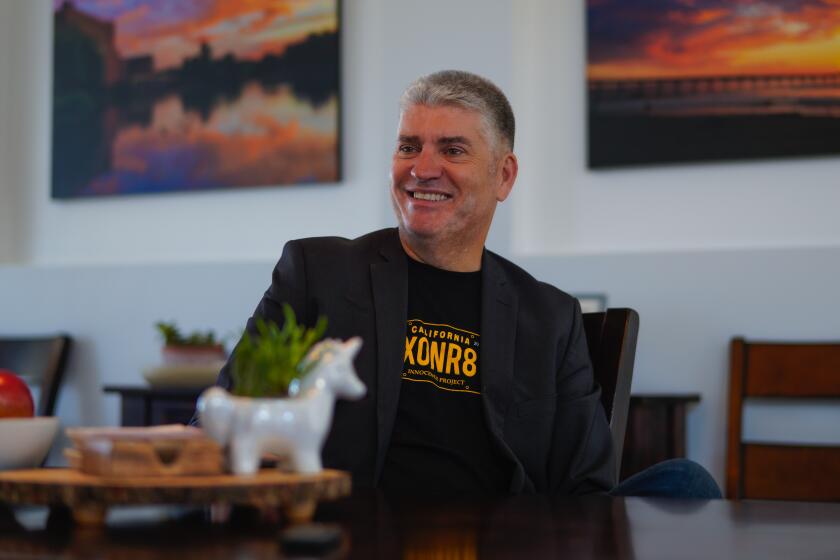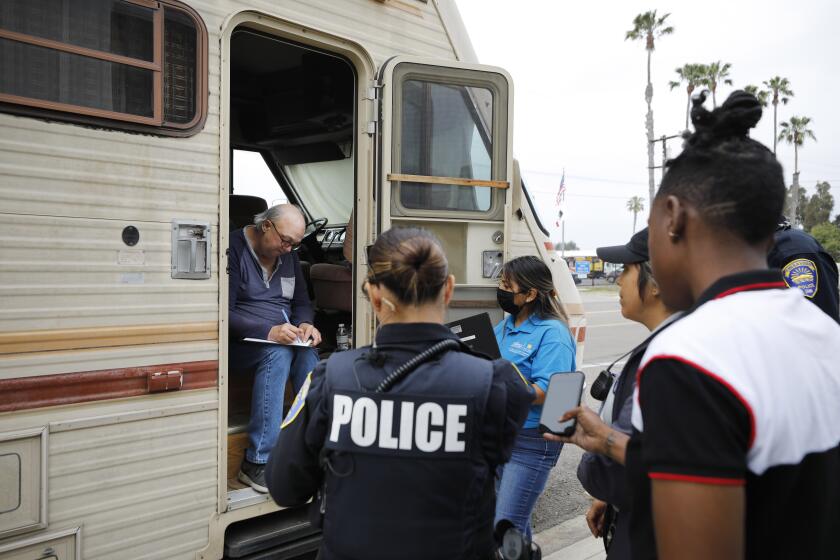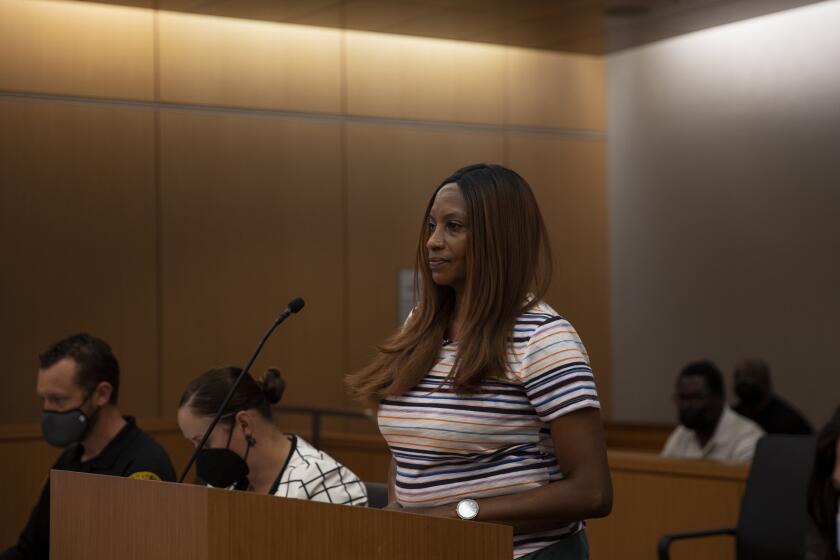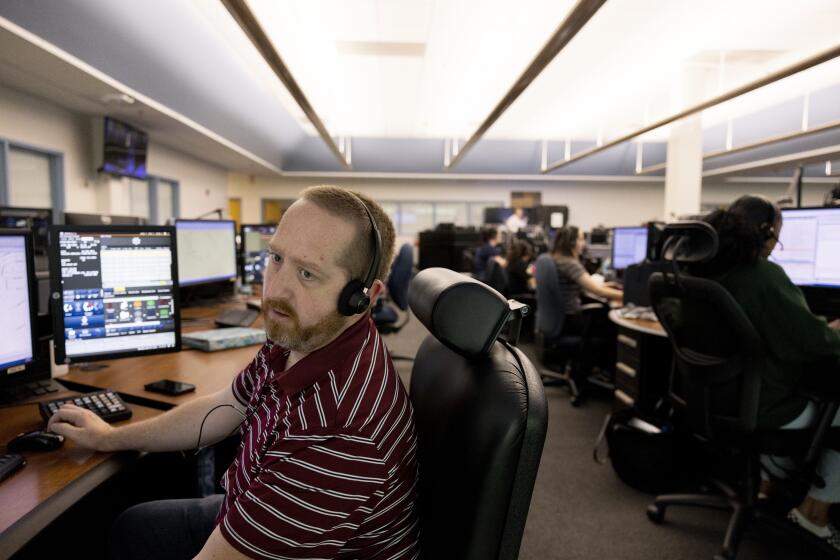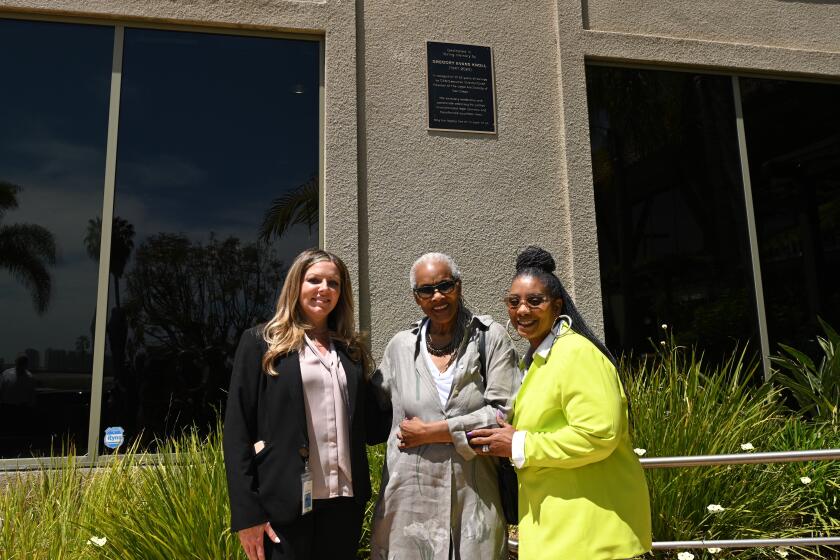California lawmakers say there’s more to do to combat human trafficking

The International Labor Organization estimates 21 million people worldwide are enslaved in forced labor and human trafficking. (March 2, 2017)
A local lawyer mentioned to me in an interview roughly a decade ago that street gangs that once trafficked primarily in drugs had found a new “product” to push.
She used a quote that can’t be repeated in full here, but it has stuck in my memory. In essence, she said that although gangs were still dealing drugs all over San Diego County, many had found pimping young women and girls to be more lucrative.
But she put it more bluntly: “(Prostitution) is the new crack.”
Since then, many local and state politicians seem to have gotten the message. Describing human trafficking as a form of “modern-day slavery,” those same politicians have called upon the news media to spread the word about the problem in California, where girls as young as 12 have been made to sell their bodies.
According to the FBI, San Diego, Los Angeles and San Francisco are among the top 13 U.S. cities where sex trafficking is big business. Human trafficking, which is both a state and federal crime, can also involve people who are exploited for labor services.
Politicians, police and prosecutors have also called upon the public to look for warning signs that a woman, man or child may be a victim and in need of help. (For the record, there are adults who say they are not victims and that they made the choice to do sex work of their own volition. But that’s another story.)
And there’s been a big push to change state law in regard to human trafficking in a way that reduces both supply and demand.
Republican Assemblyman Brian Maienschein held a news conference in San Diego Wednesday to push his bill, the Commercial Child Rape Prevention Act, which aims to give governments tools they can use to target sex trafficking in civil court as a criminal enterprise.
This would mean that district attorneys, attorney generals, some city attorneys and the victims would be able to sue the perpetrators, hitting them where it might hurt the most — their profits.
State Sen. Toni Atkins, a San Diego Democrat, has two bills pending in the Legislature related to human trafficking. One, if passed, would allow prosecutors in criminal trials to introduce evidence of past illegal acts — specifically, sex trafficking, pimping and pandering — that would typically be excluded at trial.
Atkins has said evidence of past criminal acts is permissible at trial for sexual offenses and domestic violence crimes.
A second bill would help train employees at hotels and motels, which the crime networks rely upon to carry out their operations, to identify human-trafficking cases and report them to police. Atkins notes that the airline industry, including the San Francisco International Airport and Oakland International Airport, has been training employees in this since 2012.
Each of the bills is set for a hearing later this month.
All this talk about human trafficking has led to a relatively recent shift in focus among lawmakers and law enforcement toward treating people forced into sex or labor as victims, rather than criminals, and going after the pimps and johns instead.
Gov. Jerry Brown signed into law last year several bills related to this subject, including one from Democratic Sen. Holly Mitchell of Los Angeles. The bill made laws related to prostitution and loitering with the intent to commit prostitution inapplicable to people under the age of 18.
In September, the governor also signed a bill by Sen. Bill Monning, a Carmel Democrat, that did away with mandatory minimum jail terms that had been imposed for some acts of prostitution.
That same month, Brown signed a bill from Assemblywoman Shirley Weber, a San Diego Democrat, that allows victims of human trafficking who are charged with crimes to present an affirmative defense in court by arguing they were coerced to commit the offenses and feared they would be harmed if they didn’t comply.
Experts say many victims are runaways, who were abused at home.
“I came from a background of severe abuse. I didn’t have a good foundation. I didn’t know who I was or how valuable I was,” said Tiffany Mester, 28, who appeared with other child advocates at Maienschein’s news conference.
Mester said she was trafficked locally by an older man starting when she was 14. It ended at age 16, when the pimp was arrested and she was sent to Juvenile Hall.
She now works with the Hidden Treasures Foundation, which works to “rescue and restore” women and children victimized by sex slavery.
dana.littlefield@sduniontribune.com
Twitter: @danalittlefield
The latest news, as soon as it breaks.
Get our email alerts straight to your inbox.
You may occasionally receive promotional content from the San Diego Union-Tribune.

